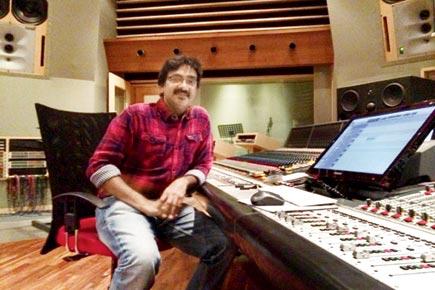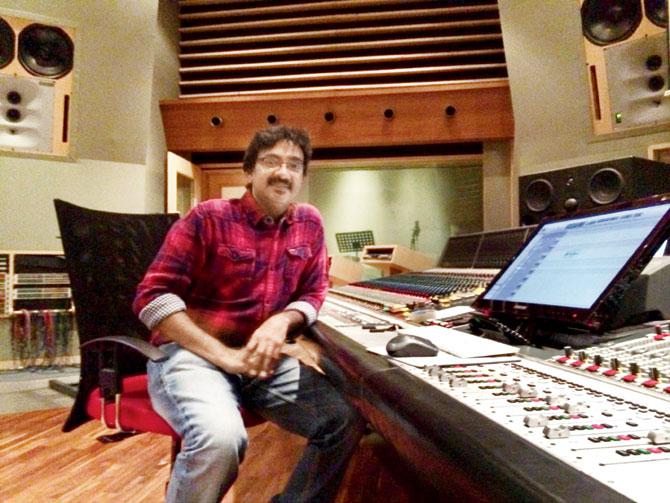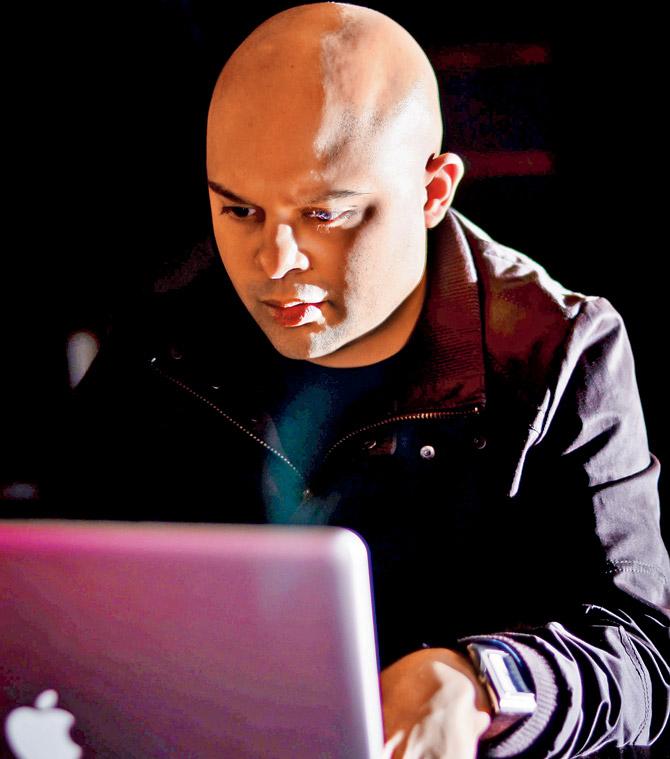They could be the reason you love a hit song, and you don't even know it. The music producers are finally stepping out of the shadows of composers, and carving an identity for themselves


Jim Satya is currently working on Jagga Jasoos with music composer Pritam
Once AR Rahman called and asked me to work on a song with him, and I laughed, 'what would you, of all people, need my expertise for?'" says Jim Satya, whose musical repertoire includes songs from Barfi, and who is now working with music director Pritam on Jagga Jasoos. "Rahman is equipped in all ways, you see. And he gave a reply that pretty much sums up the importance of a music producer. He said, 'you will bring something different to the table, a different approach," says the 49-year-old.

Abhijit Vaghani has worked on Ki and Ka and Bajrangi Bhaijaan
Chennai-based Satya is one of many music producers slowly gaining recognition for their work. Most award ceremonies, barring those focused on music, don't recognise their work. And hence, a lay person would be forgiven for asking "what's the difference between a composer and a producer" or even "doesn't the music director do everything?"

Kiran Kamath produced Baby Ko Bass from Sultan
As Satya says, "The producer makes the blueprint for the song." Second in line after the composer, who thinks up a melody, it's the producer who constructs the song. "People think it's just a technical job. But it's a creative one. Also, we need to be aware of all kinds of music — you should know every genre," adds Satya.
Think of this: Michael Jackson's Thriller may not have been the iconic album it is without the legendary producer Quincy Jones. The job includes thinking up counter melodies that may run alongside the main melody. He decides which instrument makes an entry where. That drum solo you like? The producer put it in. That synth sub-melody that's stuck in your head? The producer put it in.
Singer Jubin Nautiyal, of The Humma Song fame, explains it well: "After the fifth time you listen to a song, you understand what it means. After the second time, you get the melody. But in the beginning, you only react to the feel, and that's the producer doing his job. He is the only one who knows what the song will eventually sound like."
Abhijit Vaghani, who has worked on Aaj Ki Party from Bajrangi Bhaijaan, is also the man behind popular retro remixes like Pal Pal Dil Ke Paas and Halka Halka Suroor.
The Dubai-based producer says that things may be changing, but it is still only the really successful producers who manage to get credit for their work. Vagahni also says that eventually it's the label's call on what songs make it to the album, and hence, he now deals straight with label head. "I call them directly and ask for credit. There are times I have even forgone credit, because the music director is so close to the song, he can't digest what the producer has done."
For DJ Kiran Kamath, 38, who got nominated for Baby Ko Bass Pasand Hai from Sultan at a recent music award ceremony, the journey has been a long one. "Social media and YouTube has got us recognition." Kamath says a song is a team effort, and everyone is equally responsible for its success. It's a good sign for the future of the music producer when music directors like Vishal Dadlani, also, endorse that view. He tells us, "A good music producer brings an external perspective to a song. A composer becomes very attached to it. For years, instrumentalists weren't given credit, but now it's common. Same with the producers. In fact, there are songs that are defined by the producer. And that's why they should be right up there with us."
 Subscribe today by clicking the link and stay updated with the latest news!" Click here!
Subscribe today by clicking the link and stay updated with the latest news!" Click here!









